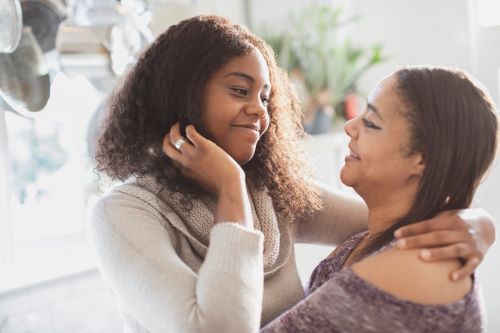IF I could shout this from the rooftops I genuinely would – Black women deserve all the flowers and so, so much more.
As International Women’s Day embarks upon us on March 8 this month, I’ve been thinking about the incredible power that Black women hold.
And no, I’m not talking about Black girl magic, nor am I talking about Black excellence. I’m talking about our unwavering ability to endure. To exist. Our ability to weather the incessant storms of racism, gender inequality, and the other intersectional hurdles that are thrown our way.
Our ability to exist in a world where 68% of Black women have reported racial bias at work, 50% of Black women in senior positions have resigned due to racism, and one in eight Black LBT+ women have been seriously sexually assaulted or raped at work according to a 2023 report from Inclusive Employers.
Statistics
The statistics are harrowing. But I’m not writing this article to paint a depressing depiction of our world.
I’m writing this article to remind Black women readers that you deserve more praise. You deserve your flowers. And you don’t just deserve this when you achieve something incredible against the odds.
You deserve them for enduring everyday life. For the times when you face racism at work but still show up every, single, day because you know you have a right to be there and you have people to provide for.
When you do all that you can to be a loving mother and to take care of your children despite having a million other barriers to face.
You deserve them for keeping your self-confidence high and knowing you’re beautiful whilst living in a world that centres whiteness as the beauty standard.
Our ability to survive is our superpower. And that’s better than any of the far-fetched superpowers you see in comic books or anime films if you ask me.

And, even though I’m writing this to remind Black women that we all deserve to be celebrated, I also want to make it clear that I don’t think it’s fair that we have to be strong all the time. That we feel that we always need to over-achieve. To work “twice as hard”.
To be resilient. Resilience can be exhausting! I know it’s an important strength to build. But being forced to be resilient every single day purely because of how you were born (i.e. your race and sex) isn’t fair. Which is why I truly believe that systems have to change. Where society and institutional cultures fail, there should be laws, policies and clear implementation practices to protect those who need it.
To be honest, that’s why I started my organisation Enact Equality, which runs national campaigns to change laws and policies, with an aim to better protect Black communities across the UK.
Impact
We also founded and co-ordinate the All-Party Parliamentary Group for Race Equality in Education, which is a coalition of political leaders across both the House of Commons and the House of Lords, who campaign to advance equality in our education institutions across England.
Many of our initiatives have had a huge impact on Black women and girls, and I’m so happy that this is the case – even though I know we still have a long way to go.

In our first year, we launched a huge campaign on Afro hair discrimination, which led to the Equality and Human Rights Commission publishing new national guidance against race-based hair discrimination for schools across England, Scotland and Wales.
This was also supported by the UK Prime Minister’s Office, and we hope that the guidance continues to reform thousands of school uniform policies in the UK.
More than half of Black children have been sent home from school for wearing their hair naturally or in a protective hairstyle, and 1 in 4 of Black adults have been sent home from work or faced disciplinary action for their style of hair too according to recent research from Dove, UK.
I don’t want another generation of Black girls to have to endure this. I want Black children and women to feel empowered to embrace their own identity. I can’t say this enough, our institutions need a massive overhaul.
So as we reflect on International Women’s Day, I want us to take a genuine moment to celebrate the Black women and girls in our community. Yes, the odds may be stacked against us, but we’ve proven time and time again that diamonds are created under pressure.
And, I am so thankful to all of the Black women who continue to break down doors and pave the way for the next generation.
L’myah Sherae is the Director of Enact Equality and the Founder of the All-Party Parliamentary Group for Race Equality in Education


Comments Form
1 Comment
I am correct when noticing that “black” women are represented by dual-heritage women, of mixed ethnicity.
We clearly do not welcome native African skinned women; whilst dual-heritage women of mixed origins are favoured especially by rappers, and welcomed and seem as acceptable, and beautiful, and desirable.